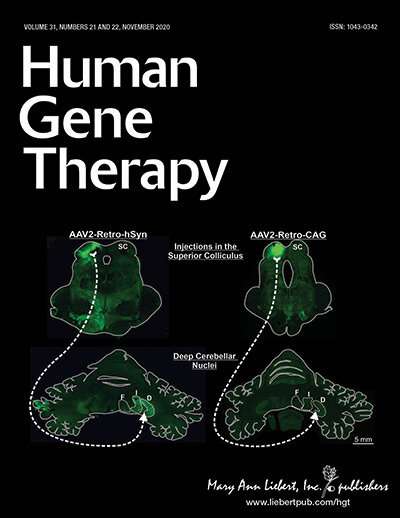journal in the field and provides all-inclusive access to the critical pillars of human gene therapy: research, methods, and clinical applications. Credit: Mary Ann Liebert, Inc., publishers
A new study identified an adenovirus gene therapy vector carrying a VEGF isoform. It can improve uterine blood flow in placental insufficiency, as reported in the peer-reviewed journal Human Gene Therapy.
Reduced uterine blood flow and lack of bioavailable VEGF due to placental insufficiency is a major cause of severe fetal growth restriction (FGR). This is untreatable and causes serious neonatal morbidity and death.
Anna David, UCL Institute for Women's Health, and colleagues tested different VEGF isoforms on endothelial cells from four species, including from human umbilical vein. The results support the use of the best performing VEGF isoform "in a human clinical trial for FGR caused by placental insufficiency."
"The placenta is one of the most critical and uniquely physiologically adapted structures in human anatomy. The work by Dr. David and her group moves forward an important new gene therapy approach to restoring the vascular integrity of the placenta when it is impaired and thereby protecting fetal health," according to Editor-in-Chief of Human Gene Therapy Terence R. Flotte, MD, Celia and Isaac Haidak Professor of Medical Education and Dean, Provost, and Executive Deputy Chancellor, University of Massachusetts Medical School.
More information: Carlo Rossi et al, Comparison of Efficiency and Function of Vascular Endothelial Growth Factor Adenovirus Vectors in Endothelial Cells for Gene Therapy of Placental Insufficiency, Human Gene Therapy (2020). DOI: 10.1089/hum.2020.006
Journal information: Human Gene Therapy
Provided by Mary Ann Liebert, Inc























